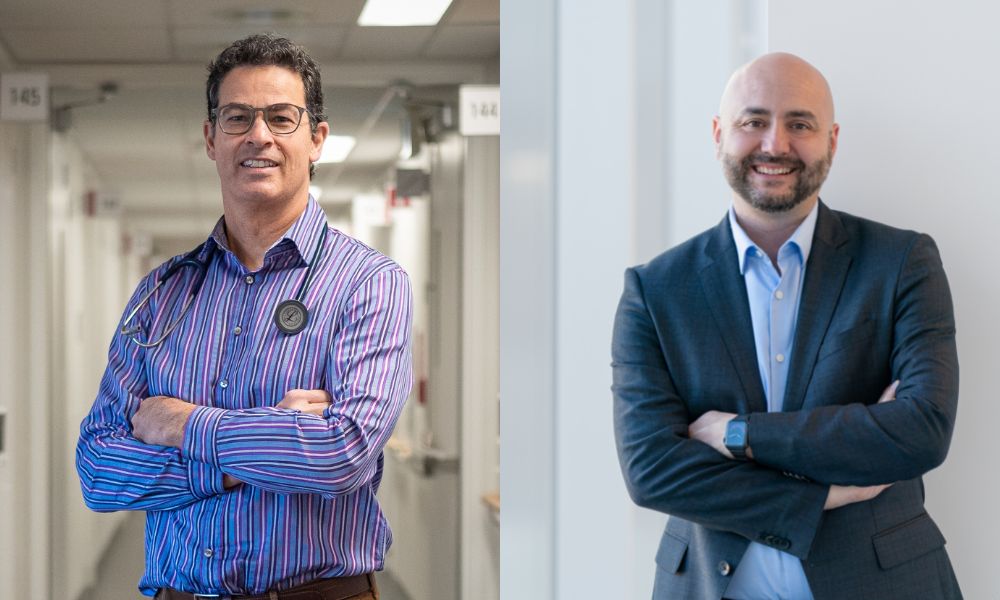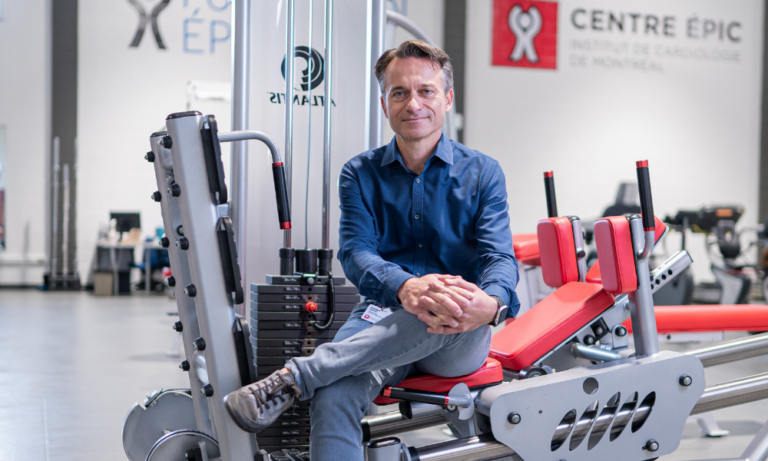Prevention: the key to a healthy heart and a healthy Quebec
Dr. Philippe L.-L'Allier, Director of Prevention at the Montreal Heart Institute, and Yannick Elliott, Vice President, Philanthropy and Partnerships at the Montreal Heart Institute Foundation
Home > Blog > Prevention: the key to a healthy heart and a healthy Quebec
During Heart Month, we are coming together as one with a clear message: preventive medicine makes a huge difference and it’s time to rally around this approach.
Our observation is a simple one: when it comes to cardiovascular health, an ounce of prevention is worth a pound of cure. In other words, a global, preventive medical approach – and in some cases a non-pharmacological one – is much more effective for patients and our community. We need to act now to improve our healthy life expectancy!
The World Health Organization (WHO) has predicted that approximately 1.4 billion people will develop a comorbidity, or exacerbate one, due to their sedentary lifestyle. What does this mean for Quebec? Without changing our current mindset about preventive care and lifestyle habits, Quebecers will be no exception to this prediction.
Heart disease is the main cause of death for those suffering from type 2 diabetes – a disease that affects about 31% of Canadians when taking into account prediabetes. By focusing on an approach based on healthy food habits and physical activity, our prevention clinic has been able to produce promising results: 20% of prediabetics and 12% of diabetics have gone into remission.
Maintaining poor lifestyle habits (a poor diet, smoking, a sedentary lifestyle) and relying only on hypoglycemic medications is not only less effective in reducing the number of cardiovascular events, it’s also expensive in the long run for our society as a whole.
The benefits of exercise greatly outweigh those of taking medication without any other lifestyle changes. Furthermore, an active lifestyle also improves neurocognitive performance, mental health, and your overall well-being.
To mobilize our healthcare system and raise awareness about the benefits of prevention, we believe that we must first demonstrate that the situation can get better and cultivate hope, despite the current bleak picture of our system.
The support our Foundation has received, combined with a collective desire for progress, has enabled our Institute’s prevention clinic to invest in innovative programs with far-reaching effects.
In sum, it’s important to get ready today to fight the heart disease of tomorrow. Prevention takes individual efforts, but the payoff positively impacts our whole society. In fact, every dollar invested in prevention saves between $2 and $20 in the long run. These gains could allow us to expand our research, offer better treatments, and, most importantly, provide citizens with a chance to enjoy a better, healthier life expectancy. Prevention just might be the key to a brighter future after all.
Donate









